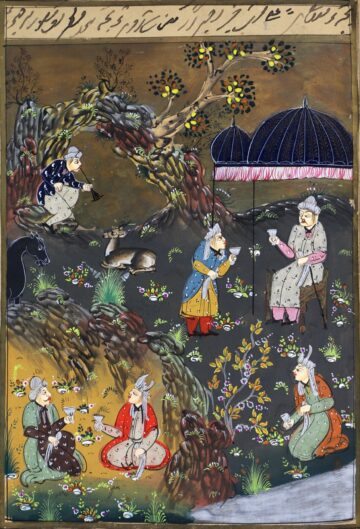Recent developments in Ismaili studies have addressed various misconceptions surrounding the history, cultures and beliefs of the IsmailisAdherents of a branch of Shi’i Islam that considers Ismail, the eldest son of the Shi’i Imam Jaʿfar al-Ṣādiq (d. 765), as his successor. and have set a high standard for research. Although there exists a respectable number of publications in connection with the Alamūt period (1090–1256), further robust enquiry into this fascinating and important juncture in Ismaili history is required.
One of the key aspects of the Nizārī Ismaili tradition is the emphasis on spiritual resurrection (qiyāmat) as a counterpart to and a perfection of ritual law (sharīʿat). The historical declaration of qiyāmat during the Imamate of Ḥasan II in 559/1164 and the post-qiyāmat period have caused much controversy yet received little critical attention based on primary sources. The event itself was originally depicted and narrated through the writings of adversaries of the Nizārīs, with the first indications in the chronicles written during the Mongol invasion after the collapse of the Alamūt state. It was only much later, with the emergence of primary sources from the Alamūt period, that more light was shed on the dynamics of the event.
The Institute of Ismaili Studies will be holding a conference to explore the various historical and doctrinal aspects of this exceptional event in Ismaili history, not just with respect to Nizārī beliefs but in the much broader context of the interactions of Ismailis with various other Muslim communities sharing similar beliefs, including Sufis and some philosophers. While the perennial issue of ritual law becoming habitual and making the practice of faith devoid of ethical content was not an idea exclusive to the Nizārī Ismailis, it has been reinforced and echoed within the esoteric framework of Ismaili thought from all periods.
We are calling for papers to address the historical and political circumstances of the declaration of resurrection as an event, messianism, eschatology and esoteric (bāṭinī) approaches to faith. Our aim is to reflect the broadest possible expression on these subjects and to create a space for open and critical deliberation and dialogue, drawing on unpublished and recently published material from the Alamūt era and earlier periods of Ismaili history. The focus of papers should be on the historical period of the Alamūt era, but they can also bring in perspectives from other relevant periods.
The conference will be in hybrid format and it will take place at the Aga Khan Centre in 2025.
Please submit your abstract (200 words) and bio by 18 December 2024 to: qiyamatconference@iis.ac.uk
Conference convenor: Dr Daryoush Mohammad Poor, Associate Professor, DARP
Organizing committee: Naushin Premji and Julia Kolb
Please note: filming and photography may take place during the conference for educational and promotional purposes.
Views expressed in the conference are those of the presenting scholars, not of IIS, the Ismaili community or leadership. Acceptance of conference papers is not an explicit endorsement of the ideas presented.







